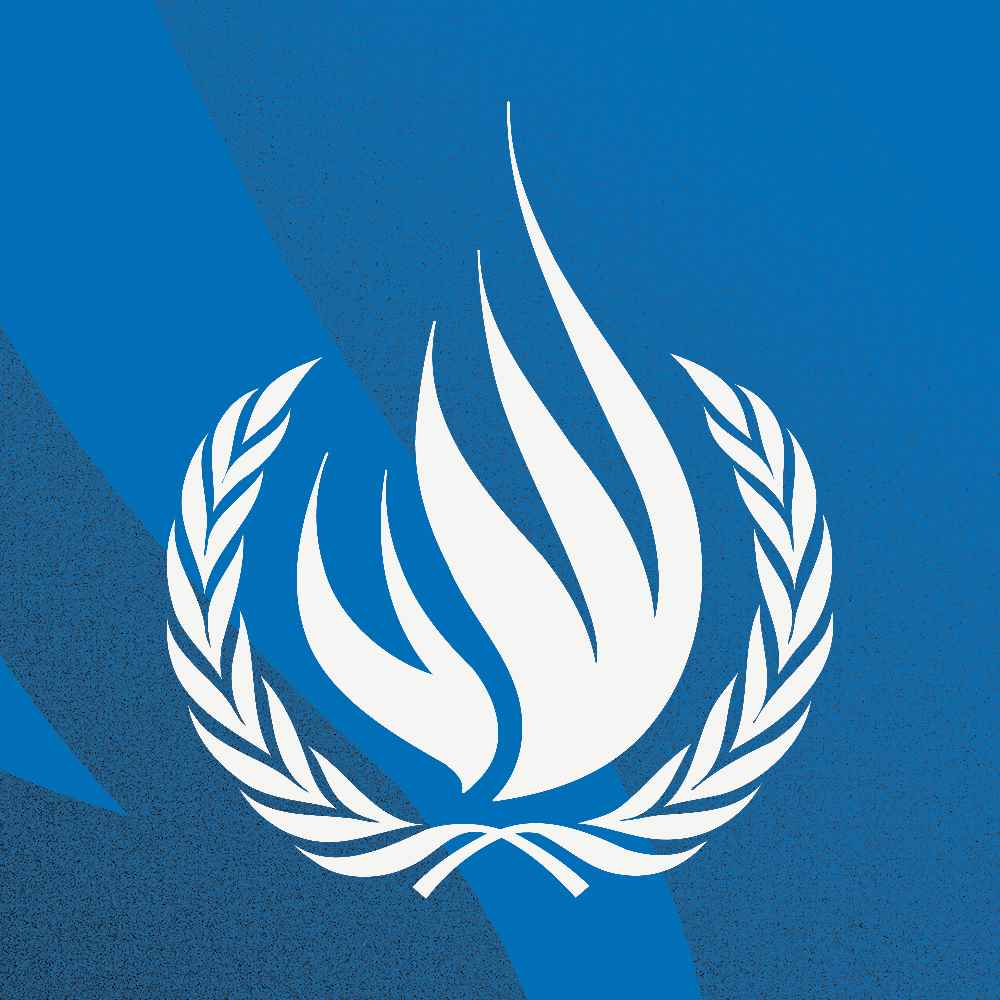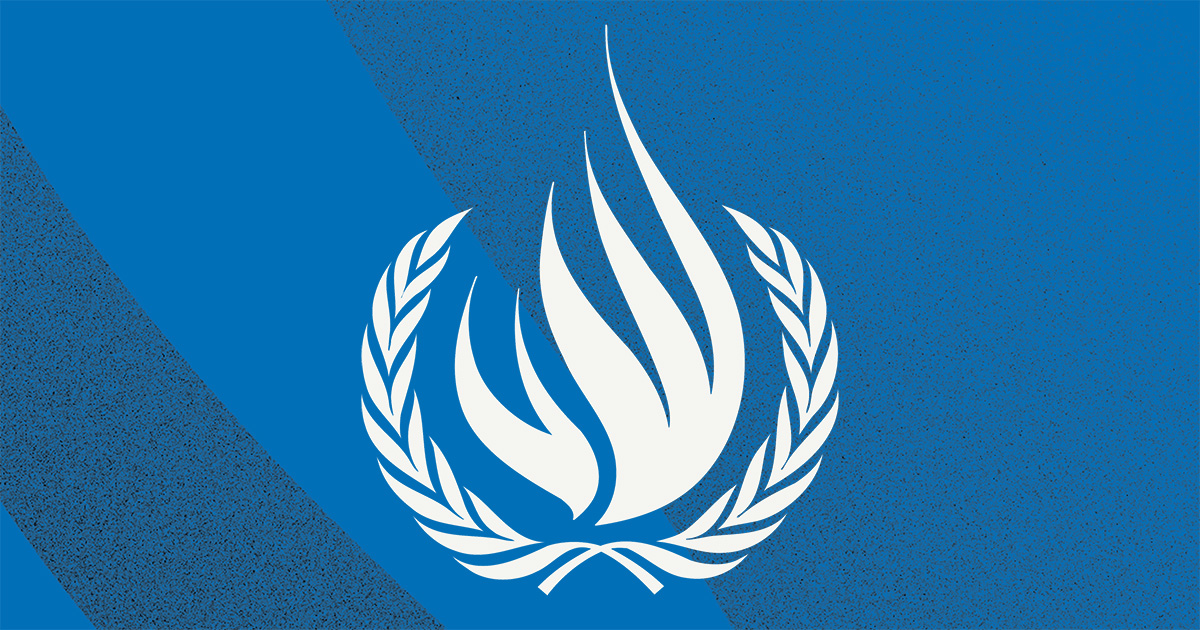
Delivered by
United Nations Deputy High Commissioner for Human Rights Nada Al-Nashif
At
57th session of the Human Rights Council
Mr. Vice-President,
Your Excellencies,
Distinguished delegates,
The crisis in Myanmar continues to sink into an abyss of human suffering. Entrenched in armed conflicts spreading the length and breadth of the country, the military continues to lose ground, exacting an ever-higher price as it goes along the way. Airstrikes and artillery – the military’s weapons of choice -- have killed scores of civilians in villages and Internally Displaced Persons’ (IDP) camps, violating international human rights and humanitarian law.
While not comparable in scale and scope to the military, some ethnic armed groups have also harmed civilians, at times apparently deliberately. Recently, the Office issued another warning about the possible reoccurrence of atrocities against Rohingya caught between the ‘Arakan Army’ – which is forcing them to flee their homes -- and the military, leaving them nowhere safe to run. In Rakhine, the situation continues to deteriorate, with intensified clashes killing more civilians, with desperately needed food and medical assistance almost entirely blocked.
Credible sources have verified a minimum of 5,600 civilians, including 1,160 women and 624 children, killed by the military since February 2021. Compounding the violence, the number of people forced to flee due to natural disasters continues to escalate daily.
Earlier this month, flooding from Typhoon Yagi resulted in an estimated over 800,000 displaced with over 300 reported deaths. Yet the military has reportedly failed to issue warnings or to help non-military families evacuate affected areas.
United Nations figures indicate that over 18.6 million people are in humanitarian need; over 3 million have been displaced due to violence across the country and over 15 million are food insecure.
These numbers tell only a partial story. As the economy plummets, essential commodities, to the extent that they remain available, are becoming unaffordable for many. More than half the population now lives in poverty with the country’s GDP dropping 12 percent annually on average since the coup in 2021.
Meanwhile, the Myanmar Humanitarian Response Plan is only 12 percent funded. For many, essential services have long since ceased to function. Shortages of food and medicine, along with a rise in cases of malaria, dengue fever, and cholera, combined with a lack of access to vaccinations, were reported in several areas.
Yet rather than addressing the needs of the people and mitigating the crisis, the military have doubled down on repression and restrictions on humanitarian operations, especially in conflict-affected areas.
After attempting to forcibly conscript civilians between 18 and 35, the military has announced its intention to arm civilians in local militias to defend territories which the military itself cannot. This risks of course leading to wider militarization and greater violence across the country.
Throughout the crisis, the people of Myanmar have consistently expressed their desire for democracy, the rule of law, and accountability, in the face of a military desperately trying to hold on to power by any means necessary.
The report before you highlights the military’s use of the criminal justice process, law enforcement and the penal apparatus to deter and punish any form of opposition. Applicable laws have been repeatedly and unilaterally modified in attempts to justify detaining an ever-growing number of actual or perceived opponents.
Credible sources have verified 26,933 individuals arrested, including 5,556 women and 547 children, indefinitely incarcerated. Between April 2023 and June 2024, over 9,000 individuals were verified as having been detained with 1,648 convicted by military-controlled courts that do not ensure minimum respect of basic judicial guarantees.
It is deeply disturbing that a full third of all those verified as having been killed since this crisis began, died in military custody. In the reporting period alone, over 1,853 people have been killed while in the military’s custody – whether in places of detention or during military operations in the field, including 759 people.
We remain very concerned by the possible use of the death penalty, with 167 people sentenced to death since the military coup.
Torture and ill-treatment, including multiple reports of sexual violence in detention – against women and LBGTI persons -- remain rampant in interrogation centers, prisons, and other detention sites. Interviewees describe being subjected to some of the most depraved treatment, including electrocution, asphyxiation, having insects and animals set upon them, and sexual torture. Perpetrators have been emboldened by long-standing impunity.
Appalling conditions in detention further contributed to multiple violations of human rights suffered by detainees. Interviewees released from 12 military-run prisons across nine states and regions described generally squalid facilities with cells being badly-lit, poorly ventilated, and overcrowded – often at double their original capacity.
In addition, continued exposure to violence and associated fear, have had a devastating impact on the mental health and well-being of victims and communities across Myanmar. The lack of adequate resources to provide mental health support has been further exacerbated by mental health professionals fleeing the country.
Mr. Vice-President,
This situation is not new. This crisis has been in a steady downward spiral for over three and half years now. Every indicator across the country is tipping downwards. Despite this, there has been little focused international attention to stem this tide of horror.
When the High Commissioner last addressed this Council, he spoke clearly of the need for a new approach to end this crisis. There is an urgent need for political will and leadership at regional and international levels to demand, and achieve, a solution in the best interests of the people of Myanmar. It is imperative that Member States, notably those with influence, work together to bolster and support ASEAN members to resolve this crisis and bring an end to the violence in Myanmar.
Our Office has proposed concrete ways to address key aspects of this self-perpetuating crisis.
The flow of arms, other military material and aviation fuel that is powering the military’s campaign of violence against the civilian population must stop.
The political process must be renewed, engaging equally with the National Unity Government, ethnic armed groups and the democracy movement to define future solutions for the country.
People in Myanmar need to have their voices and agency in this crisis fully recognized. Engagement with the youth, women and civil society must be reinvigorated and broadened to ensure they have a voice at the table.
Creative ways should be used to get humanitarian aid to the people, including through cross-border operations. This means supporting civil society and community-based organizations that have been at the forefront of efforts to deliver services where public institutions have failed to do so.
The initiatives of civil society exemplify how people-led movements are able to take steps to effectively mitigate, within limited resources, many aspects of the current suffering. Such efforts will be crucial to Myanmar’s future and to ensuring there is capacity to deliver once this crisis ends.
Myanmar’s democratic prospects rest squarely on these organizations and networks, which have stepped up since February 2021 to support those in need, despite severe security concerns and challenges.
Increased political and financial support to local organizations, is critical to ensuring civil society’s full involvement in decision-making processes concerning their country’s future.
In the midst of so much suffering, it is imperative that steps are taken to protect Rohingya civilians, in line with the provisional measures ordered by the International Court of Justice in January 2020. The time to hold military leaders accountable is now. In this, the International Criminal Court, the Independent Investigative Mechanism for Myanmar and a variety of national jurisdictions are all playing key roles.
Member States with influence should take meaningful steps to ensure the military complies with its obligations under international law, including the release of all arbitrarily detained prisoners, in order to return the country to the stable and democratic path its people so deserve.
Thank you.








